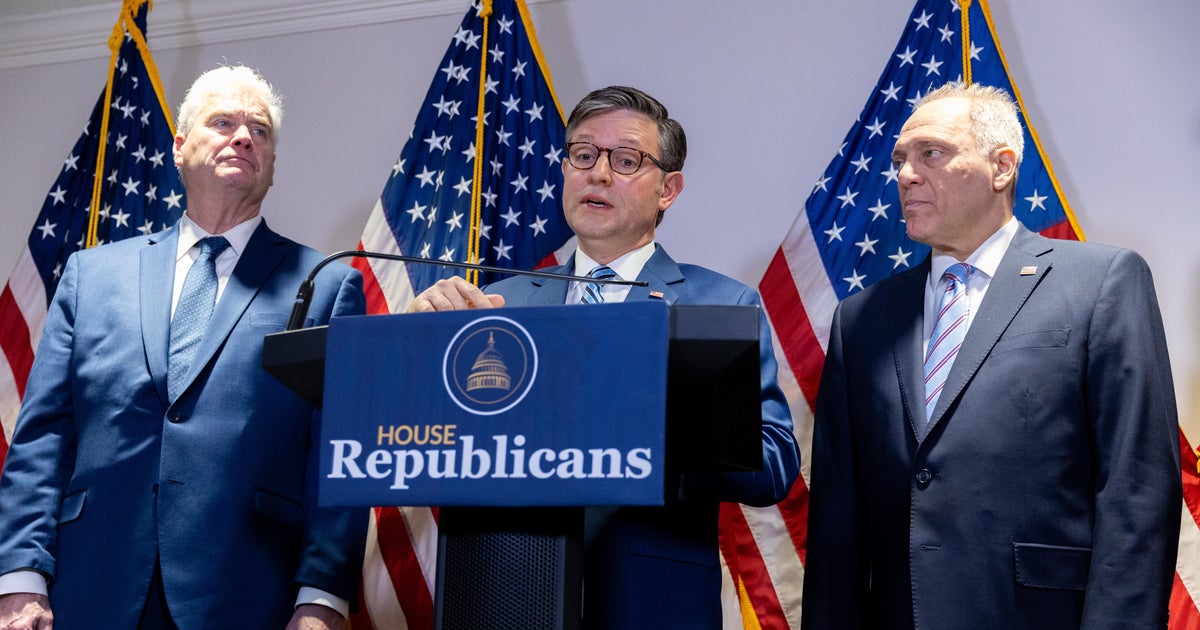House Republicans demand to know what "disciplinary action" FISA court will take over flawed FBI wiretap applications
Two House Republicans want the Foreign Intelligence Surveillance Court (FISC) to explain what "disciplinary action" will be taken against government attorneys who "knowingly filed false or misleading information" in order to secure surveillance warrants for a Trump campaign aide, according to a letter obtained by CBS News.
They also questioned the appointment of a former Justice Department official to oversee the government's response to the "inaccuracies and omissions" found by the Justice Department's inspector general, Michael E. Horowitz.
Writing to the court's presiding judge, James Boasberg, Congressmen Jim Jordan and Mark Meadows expressed doubts about the court's choice of a former Justice Department official who worked under the Obama administration, charging that David Kris was unlikely to be "objective — or likely effective" in changing the process used by the FBI and Justice Department to obtain surveillance warrants.
"...[T]he selection of Mr. Kris creates a perception that he is too personally invested on the side of the FBI... (and) has frequently defended the FBI's existing electronic surveillance practices," they wrote.
Meadows and Jordan, who sit on the House Oversight Committee, continued, "Please explain with specificity what disciplinary action, if any, the FISC intends to pursue for attorneys who knowingly filed false or misleading information with the FISC with respect to applications to surveil Carter Page."
The FBI submitted applications to the court to surveil Page four times. Ultimately, special counsel Robert Mueller's report last year "did not establish that Page coordinated with the Russian government" in its attempts to interfere in the election.
In early December, Horowitz detailed 17 "significant inaccuracies and omissions" in the FBI's handling of the applications to wiretap Page. The nearly 500-page report documented how an FBI lawyer altered an email from a government agency that stated Page had a prior relationship with the agency, later revealed to be the CIA. The lawyer changed the email to make it say the opposite, that is, to say that Page had not had a relationship with the CIA. CBS News previously confirmed the lawyer is the subject of a criminal referral.
Meadows and Jordan in their letter also point to a recent media appearance, which they say shows that Kris indicated he had already reached conclusions about the motives of officials involved.
"Although [Kris] acknowledged in an interview that the FBI's errors and omissions were 'very significant and disturbing,' he also said that the FBI's misconduct was not 'political' and attributed it to sloppiness on the part of the FBI. Inspector General Horowitz testified, however, that the OIG review did not rule out political bias or intentional misconduct."
Shortly after the Horowitz report was released, the FISC issued a highly unusual public rebuke, admonishing the bureau for misleading the court and demanding FBI Director Christopher Wray provide a plan to ensure that the information in future wiretap applications is reliable.
Wray told the court in a recent filing that he was taking 40 corrective actions to address the judges' concerns, 12 of which relate directly to the FISA application process.
Further, Attorney General William Barr said Monday that that he and Wray have agreed to establish stricter procedures for opening counterintelligence probes into presidential campaigns. Investigators will be required to obtain approval of both the attorney general and FBI director before moving forward with future investigations.
Read Jordan's and Meadows' letter below:



